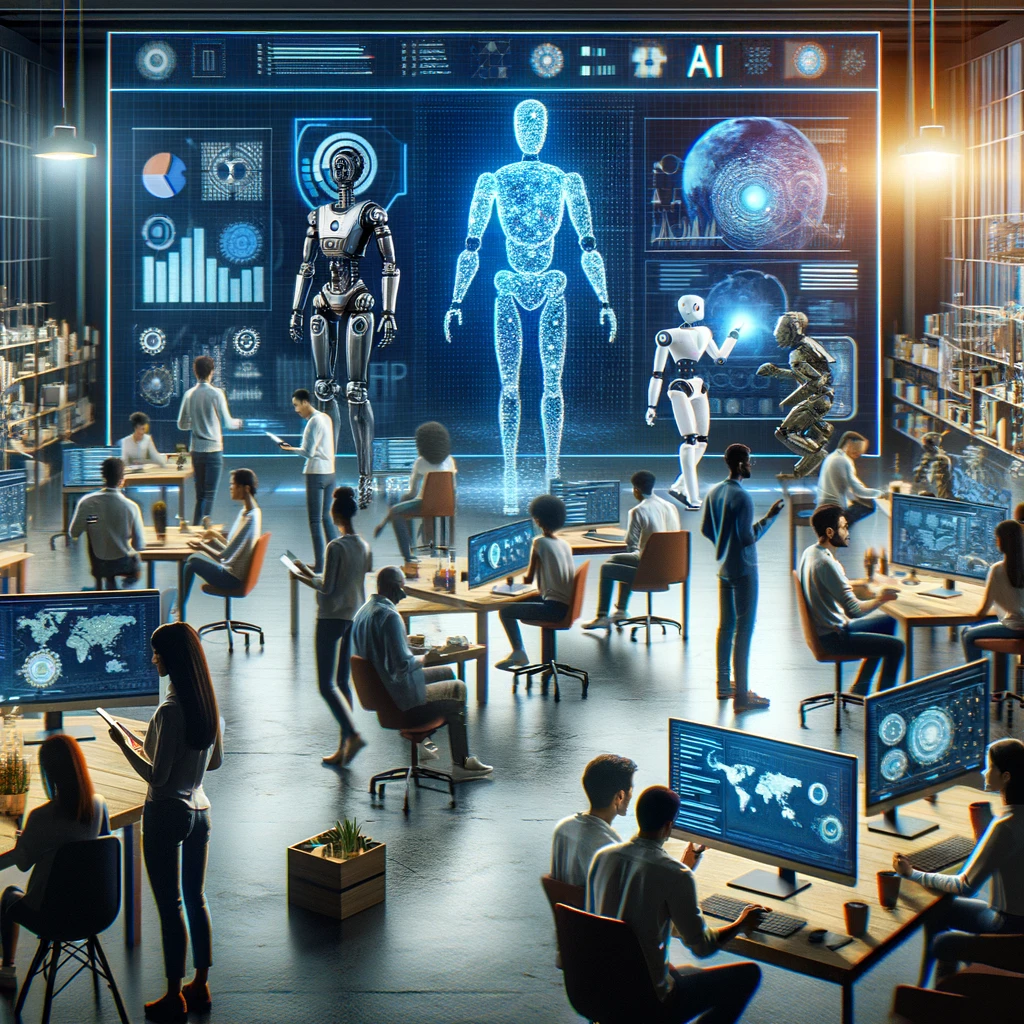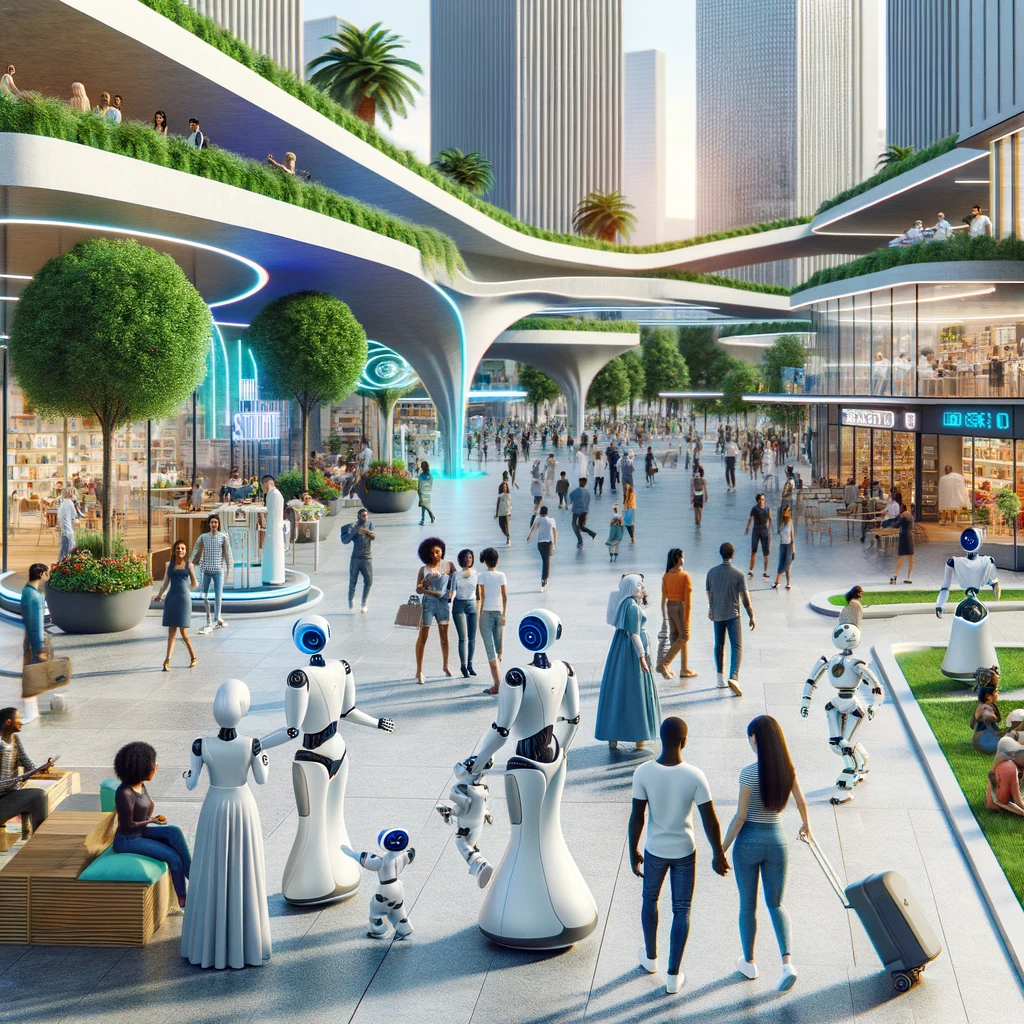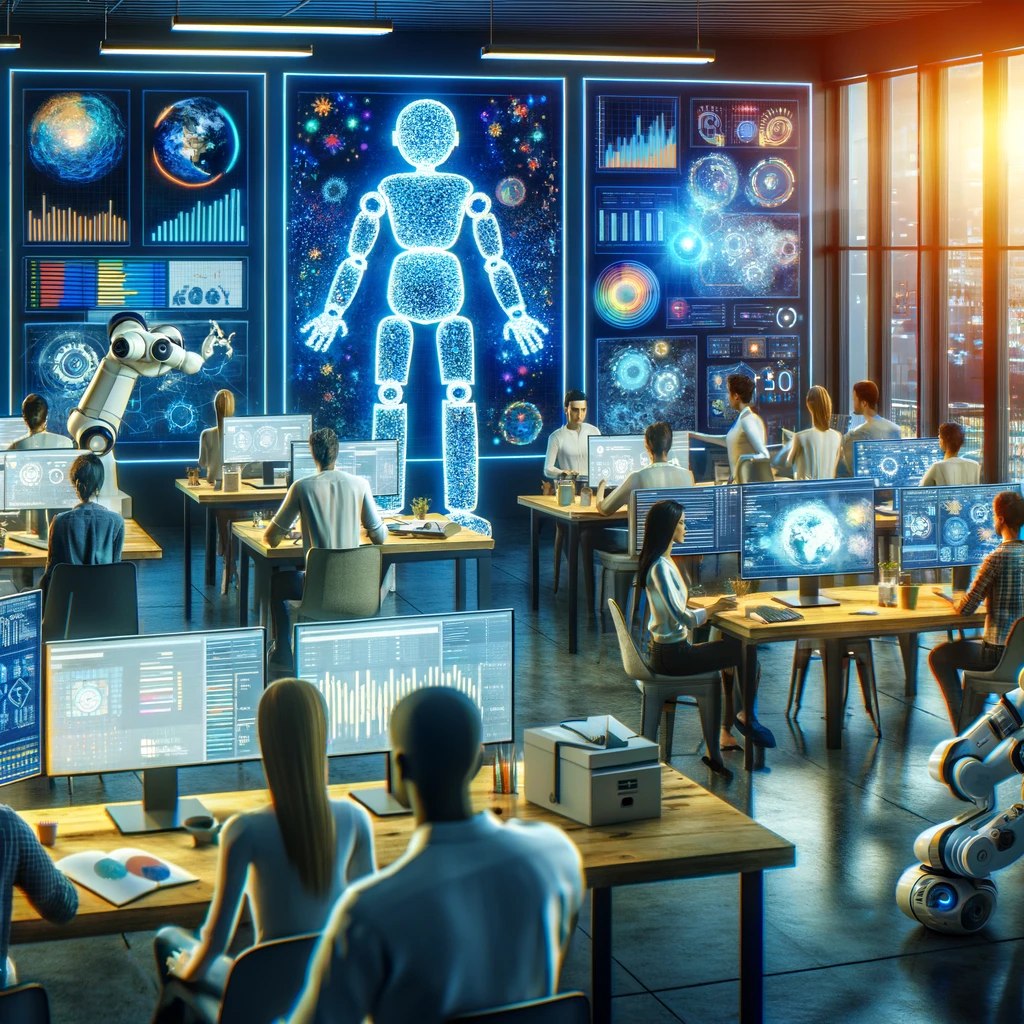Bridging Minds and Machines: The Convergence of AI, Robotics, Human Psychology, and Societal Growth
- Ango Fomuso Ekellem

- Feb 28, 2024
- 4 min read
Updated: Apr 8, 2024
Audio version here!
Our world is increasingly mediated by technology, the intersection of artificial intelligence (AI), robotics, and psychology emerges not as a mere academic curiosity but as a vital nexus for the future of human-machine interaction. So in the ever-evolving landscape of technology, the fusion of artificial intelligence (AI), robotics, and human psychology is not merely a technical endeavor but a profound exploration into the essence of human cognition, behavior, and emotion.
IT professionals with a deep-seated foundation in AI and robotics may pivot towards psychology, sociocultural dynamics, and community growth, which might appear to some as a divergence from the binary logic of computing. However, this journey is a natural progression towards understanding and enhancing the human experience through technology, reflecting a holistic approach that transcends traditional disciplinary boundaries. This multidisciplinary approach, far from being a departure from the digital realm, is an essential evolution of our engagement with technology, aimed at creating systems that are not only intelligent but also empathetic, inclusive, and profoundly human. So the essential question remains: Why do IT/AI specialists/experts seem to be very involved in psychology and personal growth? This question encapsulates the curiosity about the interconnection between fields that, on the surface, might seem distant from each other but are deeply intertwined at the level of creating technologies that are not only functional but also humane, ethical, and supportive of human well-being.
The Psychological Dimension of AI and Robotics
The endeavor to mirror the human mind in robotics and conversational AI is a quest that extends beyond the confines of programming and system design. It is an exploration into the core of what it means to be human. Psychology, with its intricate understanding of human behavior, cognition, and emotions, provides a crucial blueprint for creating machines that can genuinely understand, empathize with, and grow alongside humans. Not replacing our divine God though!
Understanding Human Behavior and Cognition
Improving the development of AI systems and robots that interact with humans in a natural and intuitive manner necessitates a deep dive into human psychology. The insights offered by psychology into how humans think, learn, and make decisions are invaluable for creating AI systems and robots that are not only more effective and user-friendly but are also capable of offering empathy and understanding.
Human-Computer Interaction (HCI)
As AI and robotics become increasingly integrated into our daily lives, the importance of studying Human-Computer Interaction (HCI) cannot be overstated. Psychology's contributions to understanding how humans interact with technology help in creating interfaces and systems that are intuitive, reducing frustration and enhancing the user experience.
Emotional AI and Social Robots
The burgeoning field of emotional AI and social robotics underscores the significance of psychology in designing AI systems and robots capable of recognizing, interpreting, and simulating human emotions. Such technologies hold the promise of facilitating more natural and effective human-robot interactions by understanding and responding to human emotions appropriately.
Ethical and Social Implications
The integration of AI and robotics into society raises important ethical and social questions. Psychology provides essential insights into the impact of these technologies on individuals and communities, guiding the development of responsible and beneficial AI systems that are attuned to human values, biases, and ethical considerations.
Beyond Technology: The Role of Sociocultural Engagement
My engagement in sociocultural dynamics and community growth is driven by the recognition that technology does not exist in a vacuum. The development of AI and robotics is influenced by, and in turn influences, the cultural and social contexts in which they are deployed. Understanding these dynamics enables us to create technology that is not only more effective but also more equitable and inclusive.
This engagement is also a reflection of the evolving role of educators and technologists. We are no longer just conveyors of knowledge or creators of tools; we are facilitators of growth, both personal and communal. This shift requires a deep understanding of the skillsets, mindsets, and toolsets that empower individuals and communities to thrive in a rapidly changing world.
The Triad of Empowerment: Skillset, Mindset, and Toolset
Skillset refers to the technical competencies and abilities that are necessary to navigate the landscape of AI and robotics. This includes not only programming and engineering skills but also an understanding of psychological principles that can inform the design of more intuitive and empathetic machines.
Mindset encompasses the attitudes and perspectives that shape our approach to technology and its potential. A growth mindset, openness to change, and an ethical framework are essential in leveraging AI and robotics for the betterment of society.
Toolset represents the technological and methodological resources at our disposal. This includes not just the hardware and software but also the conceptual frameworks and design principles that guide the development of responsible and responsive technologies.
Envisioning the Future
The fusion of AI, robotics, and human psychology opens up new avenues for innovation, emphasizing technology's role in enhancing the human condition. As we stand on the threshold of this new era, our goal is not just to build machines that can mimic human intelligence but to foster a synergy between humans and machines that amplifies our collective potential. This journey necessitates a holistic approach that transcends traditional boundaries between disciplines. By integrating insights from psychology, embracing the complexities of sociocultural dynamics, and focusing on the holistic growth of individuals and communities, we can unlock new dimensions of innovation and progress.
So this fusion of AI, robotics, and human psychology opens up unprecedented opportunities for personal and societal growth. As we navigate this exciting frontier, our engagement in these diverse fields is not a divergence from our technological roots but a deepening of our commitment to creating a future where technology enhances the human experience in ways we have yet to imagine.















Comments